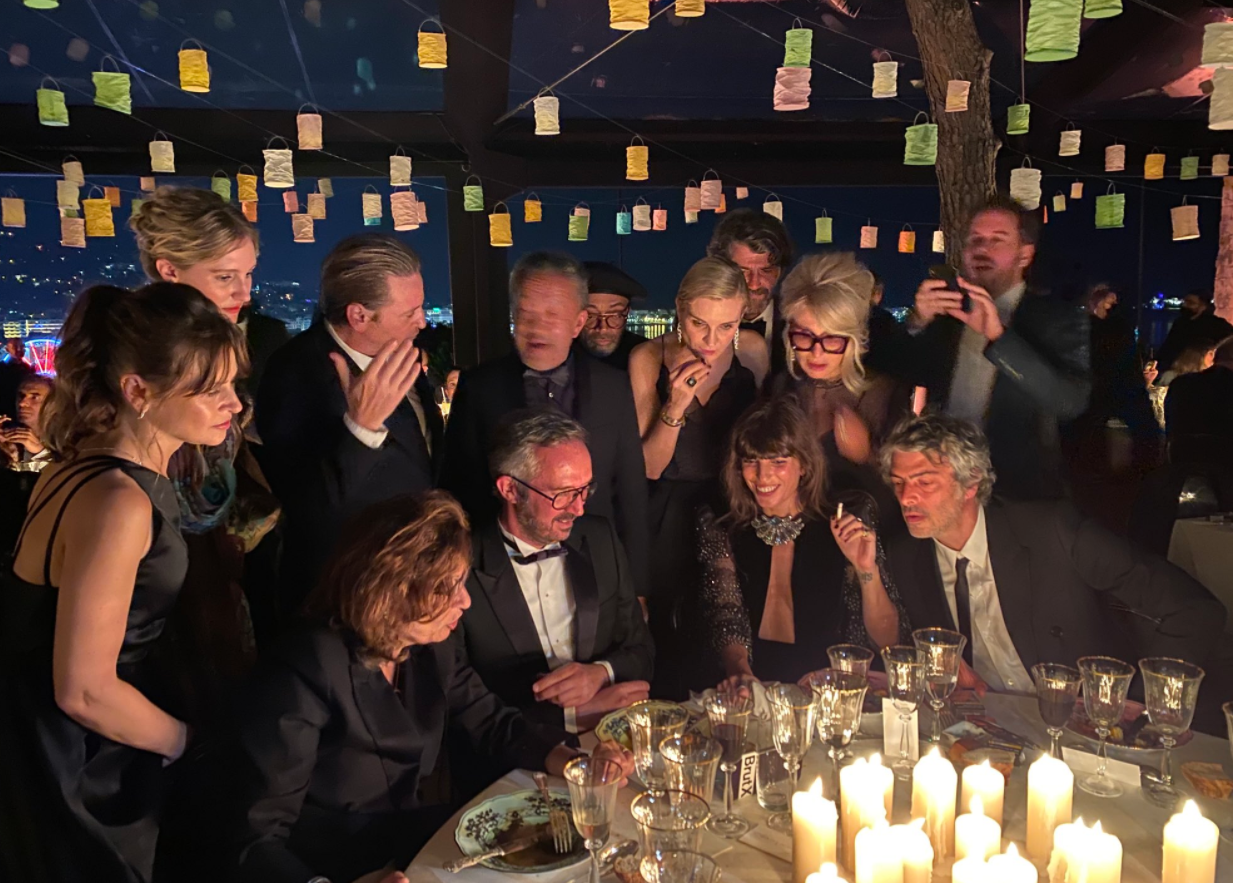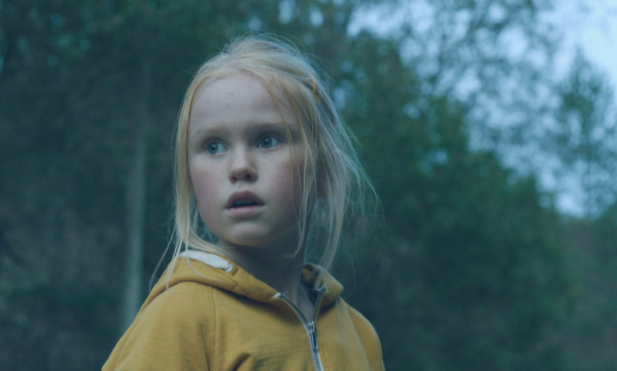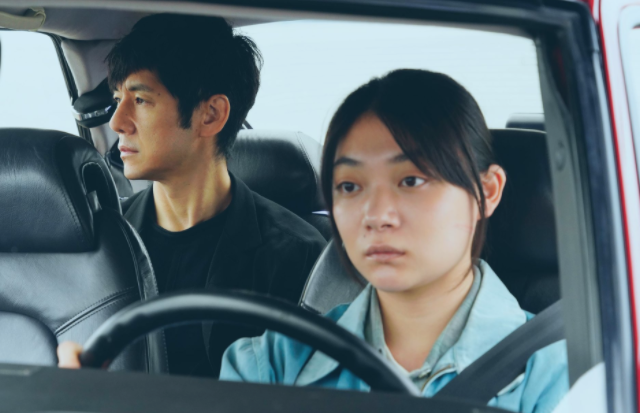by Elisa Guidici
 Cannes partygoers watching the game on a phone -- photo vis Scott Feinberg's Twitter
Cannes partygoers watching the game on a phone -- photo vis Scott Feinberg's Twitter
Yes, I took last night off. I'm not exactly a socialite during festivals: I spend the majority of my time in screenings and what's left desperately trying to write as much as possible about the movies I saw. I really envy colleagues who are able to balance work and social life at a festival as it's a skill I completely lack.
Having said so, come on, European football championship finals with Italy against England: every other Italian journalist was planning to see the match. Poor Nanni Moretti, had to present his latest movie just one hour before the match. I spent the night at a local pub with a group of Italian colleagues, watching the match and having my first dinner actually seated at a table and not hiding somewhere near the press room eating a baguette-with-something since the very first day. And Italy won, so it was a beautiful night. And now my voice is almost gone.
And the movies, Elisa, the movies? Well, I saw only two movies, but one is the longest in competition, so...

De uskyldige / The Innocents (Eskil Vogt)
UN CERTAIN REGARD
The director told us that this movie was inspired by his own kids and the way they make their own little worlds, incomprehensible by adult standards. While watching it, I couldn't refrain from thinking to myself to think that only a Scandinavian would be inspired by his children to write such a chilling, violent story. Imagine Josh Trank's Chronicle but with kindergarten kids: Vogt movie focuses on a group of kids living in a huge residential building, playing together at the park or sandbox. Kids with growing telekinesis and mind reading abilities, who are creating a world of their own full or magic and secrets that all adults in their lives are unaware of. It is a clear metaphor for how children's world have their own rules, logic, responsibilities and even stressful decisions to make. Kids are often alone in facing these decisions because adults don't get it. Childhood in Vogt's view can be really violent and brutal without losing its innocence. There is one scene in particular involving a cat that make the audience gasp, but the level of violence surrounding these children is quite high. I was impressed by the quiet way in which Vogt constructs the world of children using playful, confrontational scenes more than dialogue, but he takes a bit too long in closing the story.
Drive my car (Ryūsuke Hamaguchi)
COMPETITION FILM

Is this a movie or a mini series? It feels like a story divided into single episodes, and runs just one minute short of three whole hours. I am not against long movies but, considering they demand a large portion of time, particularly at festivals, I expect impeccable usage of that time. Ryūsuke Hamaguchi has made a very strong movie based on a short story by Haruki Murakami. After Burning and now Drive My Car long films adapted from really short stories by this Japanese author are apparently a new trend.
Drive my car is the story of a theatrical actor and director who is working on a multilingual adaptation of Checkov's Uncle Vanja for the Hiroshima Drama Festival. The project reminds him of his wife, a skilled screenwriter who he loves dearly but is not so sure he understands completely as either a woman or a lover. As a policy of the Hiroshima event, artists can not drive to the workplace, so the protagonist reluctantly leaves the wheel of his beloved old car to a young female driver. The one hour drive from hotel to theatre will give them time to open themselves up, uncovering their most painful and untold secrets.
The performances of the actors and the sharpness of the Hamaguchi's insight grow slowly but consistently, reaching, in the final act, a remarkable result in portraying the grey corners of the protagonists' souls. Yet it is really a slow burner; the entire first hour is devoted to creating a sort of prologue to the main story. I really like this approach, very common in Japanese cinema, of introducing audience to a place and a time in which apparently nothing happens and yet everything is working towards a bigger invisible scheme. That said I understand viewers who will leave the screening after an hour thinking this one to be quite boring. Like Hirokazu Koreeda's imperfect but powerful The Third Murder, Drive My Car requires a lot of attention and patience.
Previously
Diary Entry #1 Annette
Diary Entry #2 Everything Went Fine, Onada, Yasha-ga-ike
Diary Entry #3 Worst Person in the World, Velvet Underground, Lingui, etc
Diary Entry #4 Benedetta, La Fracture, Mothering Sunday
Diary Entry #5 Flag Day, Compartment No 6, Mariner of the Mountains